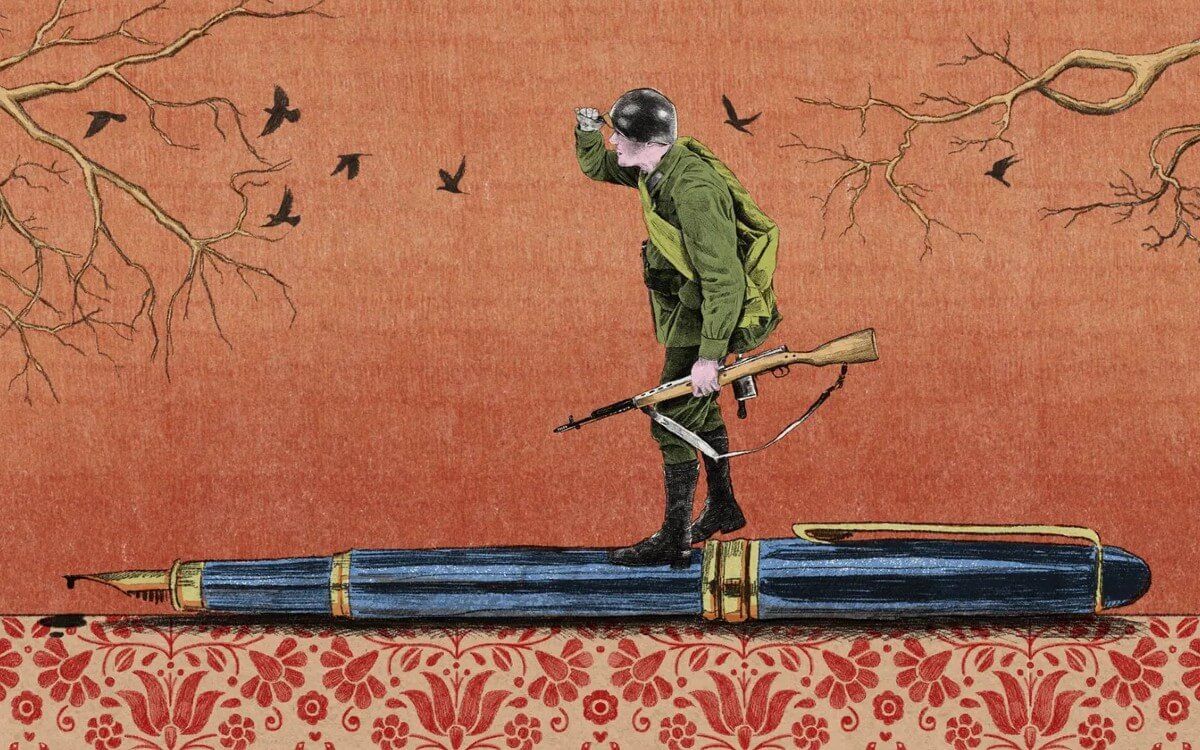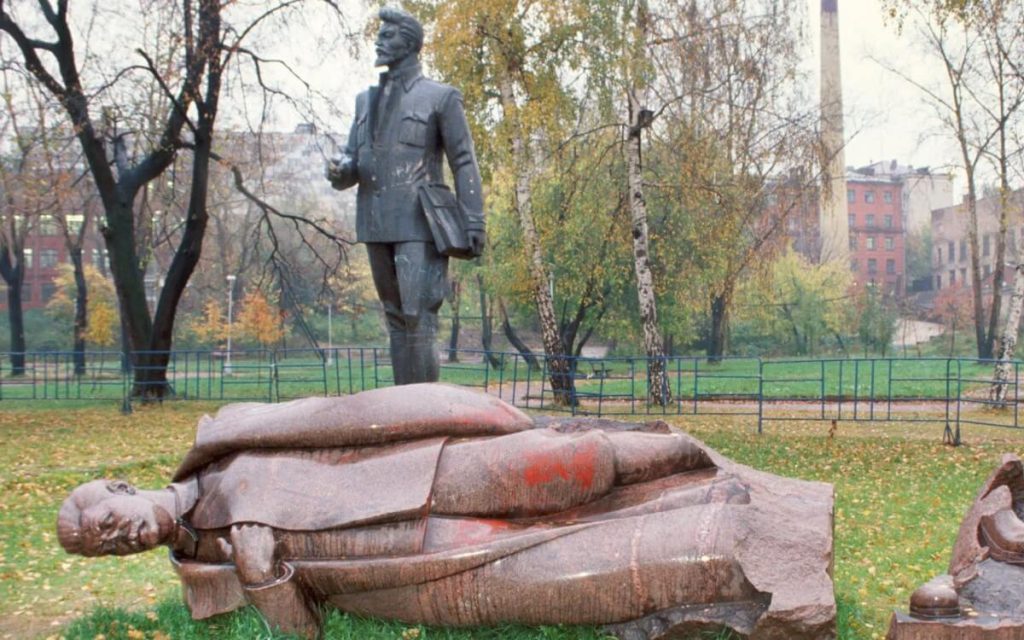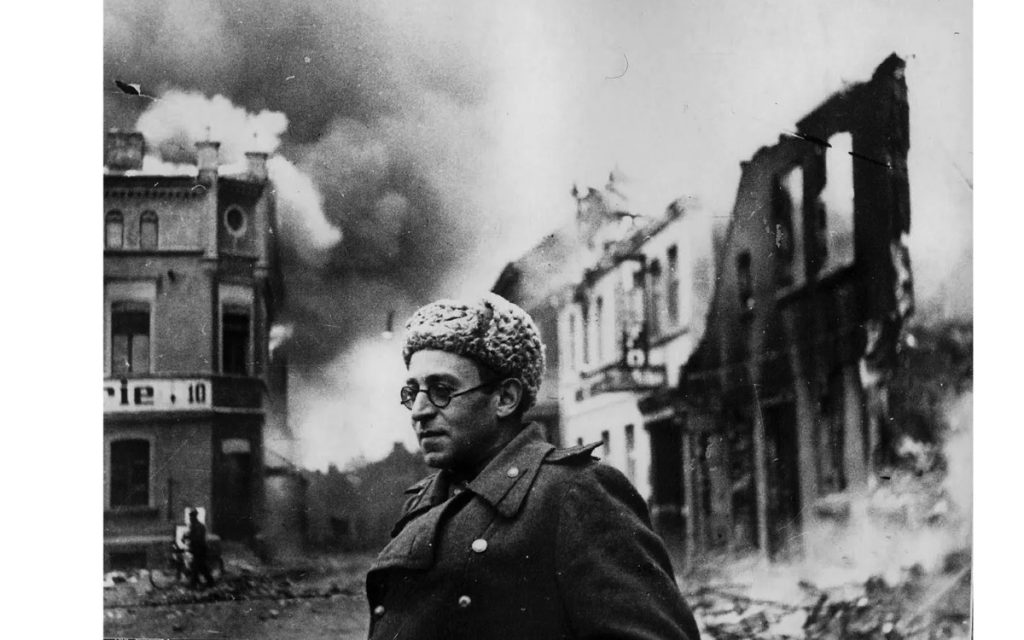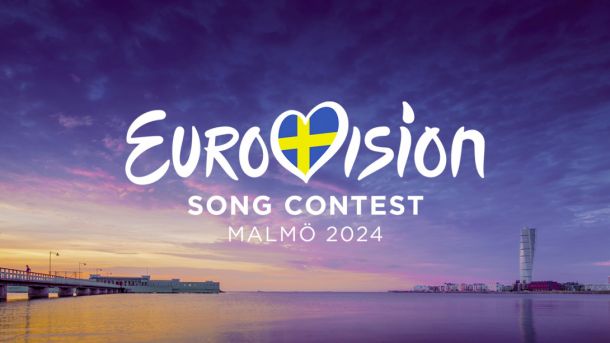Life and Fate – The Soviet novel ‘too dangerous to read’

Protesters in Russia have recently been detained for holding up blank placards, handing out copies of 1984, and referring to a conflict that has already claimed tens of thousands of lives as “a war.” In Russian history, there has been some wiggle room for expression. Liberties have come and gone, and horizon-teasing false dawns. One such incident occurred in 1956, when USSR leader Nikita Khrushchev presided over his first Party Congress. As the conference came to a close, a rumor spread around the convention center. Later that evening, there would be a “closed session.” No one from the media or from outside the USSR was permitted to attend. Khrushchev did something that no one in Russia could have imagined seeing for the past three decades when he returned to the stage just after midnight. He criticized Stalin.
According to Khrushchev, his predecessor had created a nearly unstoppable cult of personality that he had exploited to eliminate his rivals and execute hordes of unwitting communists. Krushchev had approved tens of thousands of executions at a time during the height of the fear; had he refused, he might have been labeled an enemy of the people and added to the pile. However, his scathing diatribe went on for four hours, including a break and multiple interruptions as security personnel escorted angry hecklers out of the room. Stalin was still seen as a secular divinity at that time, serving as the eternal embodiment of both Russia and the revolution. It was dangerous to question his judgment even in private or in front of others.

Khrushchev’s immediate goal in the Politburo was presumably to undermine his Stalinist enemies, but in the long run, he was also attempting to break away from tyranny. The speech’s content was kept a state secret, but its effects were quickly made clear. Political prisoners were freed, dictatorial statues were taken down, Stalingrad was renamed Volgograd, and Stalino was transformed back into Donetsk.
Vasily Grossman, a writer, must have seen an opportunity when he realized what was happening. In Berdychiv, a tiny city west of Kiev, he was born into a Jewish family. His father belonged to the Menshevik movement, a group of moderate communists who took part in the revolution before being exterminated by Stalin. While working in a coal mine in the Donbas as an adult, Grossman produced short stories that would be read by Maxim Gorky.
Communications from the front lines
Germany began its destructive invasion of the Soviet Union in June 1941, on a scale that is quite unfathomable. As a war correspondent for the army publication Krasnaya Zvezda (Red Star), which is well-liked by both soldiers and civilians, Grossman was sent to the front lines. Before publishing, it was said that Stalin would read each page himself. In the first five months of the war, the defenders experienced tragedy after disaster as Germany pushed deep into Russia and ensnared tens of thousands of Soviet soldiers. The crime of “defeatism” was frequently met with the death penalty in the USSR. Grossman undoubtedly witnessed more than he was able to record.

Nevertheless, he rose to prominence as one of the USSR’s most esteemed journalists. Grossman would gain the trust of his interview subjects at a period of repression and paranoia by conversing with them without a notepad. He would later clarify that he relied on “talks with a soldier withdrawn for a short break. The soldier tells you everything he has on his mind. One does not even need to ask questions.” He neither encouraged his interviewers nor himself repeated communist clichés or exaggerated acts of heroism for the purpose of propaganda. “He was extraordinary for being a Jewish intellectual who was respected by soldiers,” says Sir Anthony Beevor, who drew heavily on Grossman’s journalism for his books about the battles for Stalingrad and Berlin. “As soon as they read his articles, they saw that he was the only one writing the truth. Grossman would visit them in their trenches and memorise everything they said.”
He was still restrained, though. His first significant book, Stalingrad, which was released in 1952 and expertly edited to skirt the brutality and limitations of the Red Army, demonstrates this to us now. Stalingrad was rewarded with serialization following the war.
The gloves would be taken off for Stalingrad II. Grossman claimed that while serving on the front lines, he was only able to read War and Peace. He completed his task and then began again. Grossman sought to pay tribute to the sorrow that had surrounded him with a classic fit for Tolstoy, as is evident from the scale and title of Life and Fate. The distinction was that Tolstoy had not experienced Napoleon’s invasion, and his book concentrated on the St. Petersburg and Moscow elites. Counts, Countesses, Generals, Diplomats, and Princes play a significant role in the story. Life and Fate is a tale about moms, dads, sons, and daughters.
Hitler, Eichmann, and Stalin are also there, but they largely serve as a menacing backdrop, constantly present but generally at a distance and always unaware of the results of their decisions.
We see portraits of those caught in the crossfire between the reader and the approaching tyrants. Short, easily digestible chapters cut between family dinner tables, POW camps, and the foxhole, as Grossman stitches the follies and banalities of the eastern front together in episode after episode. “One soldier was singing; another his eyes half-closed, was full of dire foreboding; a third was thinking about home; a forth was chewing some bread and sausage and thinking about the sausage; a fifth, his mouth wide open, was trying to identify a bird on a tree.”

As a result, a Bruegelian landscape emerges, revealing both the broad stroke of history and its minute details. We see the broom in Life and Fate, along with all the human dust it stirs up. Perhaps Grossman intended to write something along the lines of War and Peace, but due to his experience on the front lines, he ended up somewhere in the between of Tolstoy’s historical epic and Chekhov’s ageless, microcosmic short stories. One of these episodes follows a young, single woman named Sofya as she comes across a young kid named David traveling alone in a crowded cattle truck headed for Auschwitz.
Grossman’s reporting from the liberated death camp at Treblinka was used as evidence at Nuremberg for the mass killing of his Jewish mother by the Nazis in Ukraine in 1941. As much a book about genocide as it is about war, Life and Fate.
When they arrive, David has been given the death penalty. The Nazis are ready to spare Sofya because she is a doctor. She says no. Instead, Sofya chooses to commit suicide so that she can hold on to David in the gas chamber, giving him the impression that he is his son and giving her the impression that she is a mother.
Acts of kindness
According to Linda Grant, a novelist who chose Life and Fate after spotting Grossman’s name in Beevor’s footnotes, the book is filled with “everyday acts of ordinary kindness that are not motivated by morality, but are motived by the moment”, Ideology is the poison that divides individuals in practically every thread of the narrative. Self-righteous Stalinists condemn all groups of people, including soldiers, revolutionaries, and citizens. They also betray the defenseless in order to survive. Grossman was aware because it had also occurred to him. In order to survive rather than succeed, he had compromised himself and others. “The lesson is that you shouldn’t believe in overarching ideology,” Grant tells BBC Culture, “it’s against moral certainty.”
In 1961, five years after Khrushchev’s not-so-secret speech, it would have seemed like a good time to attempt. Grossman would have understood that such a novel could never be published under Stalin, but he may have thought it was worth a shot. Now was the only option. However, once Grossman sent in his manuscript, the KGB showed up and searched his residence, taking three copies of the book with them. One would land on the desk of the party’s top ideologue and censor, Mikhail Suslov, who is alleged to have called Grossman to his office and informed him that Life and Fate was so dangerous that it couldn’t be published “for another two to three hundred years” – although this quotation has been contested by a biography of Grossman, Yuri Bit-Yunan.
It’s commonly claimed that war consists of extended periods of boredom interspersed by intense moments of fear. Life and Fate was never given the chance to be edited and has a journalistic tone. The daily experience of living on the front lines of dictatorship is described in chapter after chapter. It almost feels soothing as the reader eventually gets to know the characters. However, every 50 pages or so, there will be a passage that will shatter your heart.
However, Khrushchev’s speech unintentionally lit a flame in the darkness that lasted just long enough for Life and Fate to exist. Khrushchev had not brought about a new openness. Grossman told friends that his book had been “arrested” during the last few years of his life while he was in a deep despair. He passed away in 1964, his book imprisoned. The USSR would eventually allow Russians and Ukrainians to grasp Grossman’s masterwork in their hands in 1988 thanks to Mikhail Gorbachev’s Glasnost policy after a copy was smuggled out on microfilm a decade later. Truth frequently appears to find a way to elude tyrannical governments. The same rarely applies to those who tell the truth.





Leave a Reply
You must be logged in to post a comment.